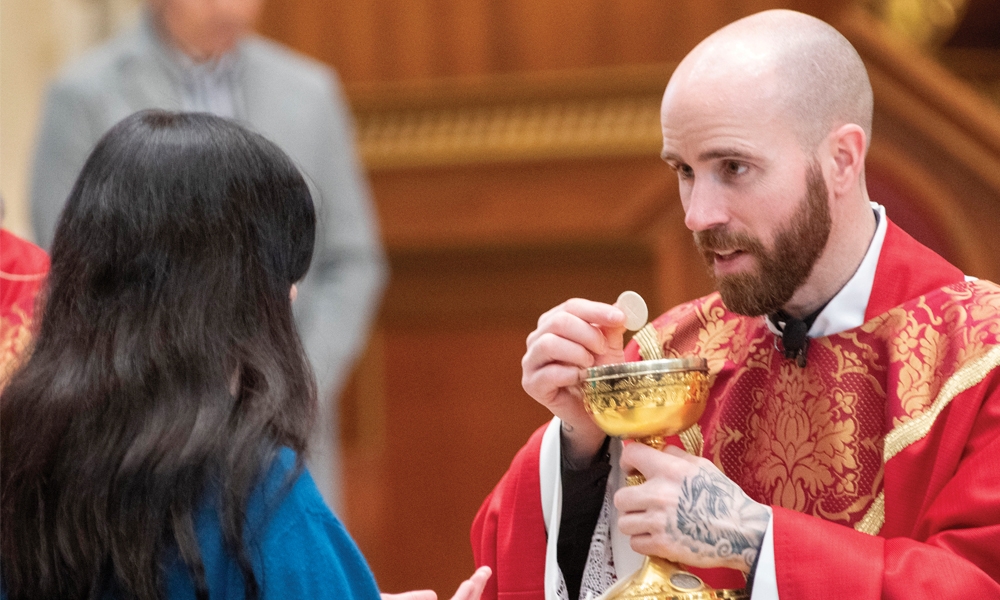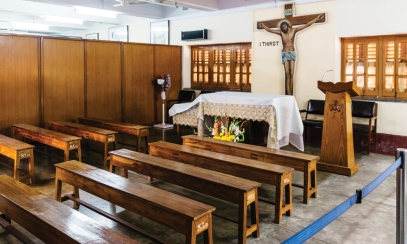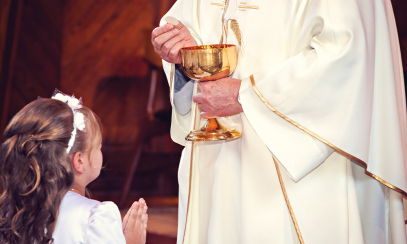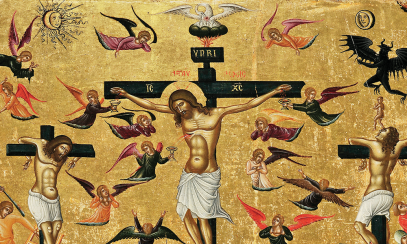
Preparing for a grace-filled Communion
Question: What must Catholics do to receive Holy Communion worthily and fruitfully?
Question: What must Catholics do to receive Holy Communion worthily and fruitfully?
Answer: When Catholics receive Holy Communion, they are truly receiving the Risen Christ who in the Holy Eucharist comes to his disciples under the forms of bread and wine. In this sacrament, therefore, Catholics are receiving a divine person as their guest: the eternal Son, the Lord of Lords “through whom all things were made.” The Church wisely asks that the faithful prepare to receive Jesus in Holy Communion with love, respect and devotion. To receive Holy Communion worthily and licitly in the Latin Rite of the Catholic Church, the communicant must…
Answer: When Catholics receive Holy Communion, they are truly receiving the Risen Christ who in the Holy Eucharist comes to his disciples under the forms of bread and wine. In this sacrament, therefore, Catholics are receiving a divine person as their guest: the eternal Son, the Lord of Lords “through whom all things were made.” The Church wisely asks that the faithful prepare to receive Jesus in Holy Communion with love, respect and devotion. To receive Holy Communion worthily and licitly in the Latin Rite of the Catholic Church, the communicant must…
- Be validly baptized.
- Be a member of the Catholic Church (except for rare exceptions).
- Be in the state of grace (i.e., not aware of any mortal sins committed that have not yet been confessed in the Sacrament of Penance.)
- Keep a one-hour fast before Holy Communion. Out of respect for the Lord, the Church asks that Catholics refrain from taking any food or any beverage for at least 60 minutes before Communion – though medicine and water are permitted. Please note that this Eucharistic fast takes place at least one hour before Communion – not one hour before Mass. However, according to Catholic Canon Law, “the elderly, the infirm, and those who care for them can receive the Most Holy Eucharist even if they have eaten something within the preceding hour.” (Can. 919 §3)
- Profess Catholic faith in the Real Presence of Jesus in the Eucharist, distinguishing between the Body and Blood of Christ as opposed to mere bread and wine.
Faith in the Real Presence of Jesus in the Eucharist is also required for Protestant Christians to licitly receive Holy Communion, but this exception is only allowed by the Catholic Church if:
- “the danger of death is present or if, in the judgment of the diocesan bishop or conference of bishops, some other grave necessity urges it”;
- they “cannot approach a minister of their own community”; and
- they “seek [Holy Communion] on their own accord, provided that they manifest Catholic faith in respect to [this sacrament] and are properly disposed.” (See Can. 844 §4)
To gain abundant fruit, Catholics should spend the minutes after receiving Holy Communion in intense adoration of the Lord Jesus who is within them – body, blood, soul and divinity. For these precious few minutes, we are each a human tabernacle, hosting within us the Risen Christ. This is the optimal time to offer our love for the Lord, to thank him for all his gifts and to beg him for the graces we or others stand most in need of.
It is helpful to also keep in mind the mystical vision of St. Catherine Labouré. When Jesus’ Mother appeared to this saint in Paris in 1830, she asked the young nun to promote the Miraculous Medal throughout the world. The medal shows Mary with her arms reaching out as she intercedes to the Lord for graces to be showered on the world. The vertical rays on the medal are meant to symbolize these graces, but Catherine noticed that some of the rays did not reach the earth. When she asked about this detail, the Blessed Mother answered: “These are the graces God wants to give, but which no one asks for.” There is no better time than immediately after Holy Communion to plead with the Lord to give us all the graces we think we need, as well as the ones God knows we need.



